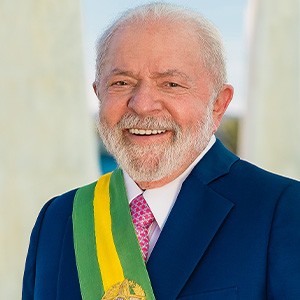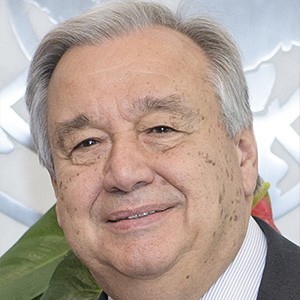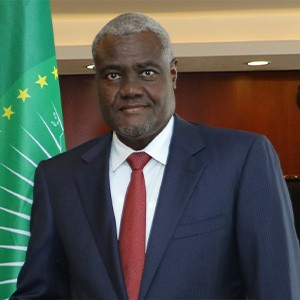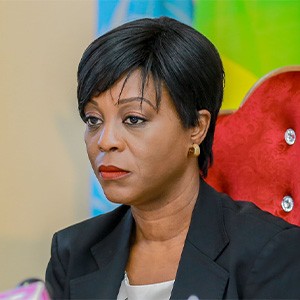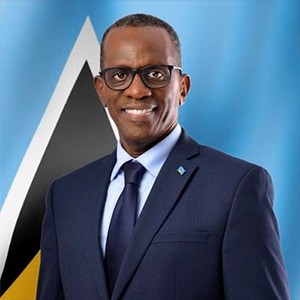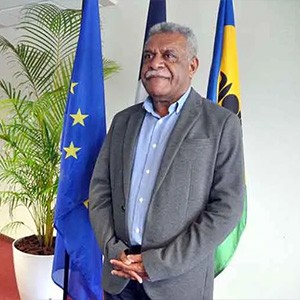United Nations Conference on Environment and Development, also known as the Earth Summit, in Rio de Janeiro, Brazil. Adoption of the United Nations Framework Convention on Climate Change and the Convention on Biological Diversity.
About The Summit
Word from the President
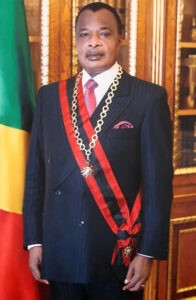
A collective commitment for a sustainable future
Dear participants,
The 2021-2030 Decade, proclaimed by the United Nations for ecosystem restoration, calls for global mobilization in the face of the environmental and climate emergency that threatens our precious planet.
In these critical times, we must act together and with determination to preserve the 350 million hectares of tropical forests, which represent a colossal investment of 1 trillion dollars according to United Nations experts’ estimates.
The recent reports from the IPCC leave no room for doubt: If we aim to achieve the ambition of the Paris Agreement, which sets a target of limiting global warming to 1.5°C by 2050, it is imperative to preserve and restore biodiversity ecosystems as well as tropical forests.
The numbers speak for themselves and underscore the magnitude of the challenges ahead. The Three Basins, home to 80% of the world’s tropical forests and two-thirds of terrestrial biodiversity, play a vital role in this fight. Moreover, in the face of accelerating climate change and its increasingly harmful consequences for human communities, animal and plant species, the Three Basins bear a major responsibility as the lungs of the planet, global regulators of carbon balance, and guardians of biodiversity.
Twelve years after a memorable first summit, in collaboration with the President of the Republic of Brazil and the President of the Republic of Indonesia, I have made the decision to host the Three Basins Summit on Biodiversity Ecosystems and Tropical Forests in Brazzaville. This edition, held under the auspices of the United Nations and the African Union, marks a seminal turning point for our Global Coalition.
We aspire to bring together, during this high-level gathering, all our countries that comprise the Three Basins around the creation of a global alliance of ecosystems with governance based on South-South cooperation. However, we also call upon OECD countries, our bilateral and multilateral technical and financial partners, the private sector, financial institutions, global philanthropy, representatives of civil society, and local governments to join this ambitious endeavor.
Wangari Maathai, a prominent Kenyan figure and the first African woman to receive the Nobel Peace Prize in 2004, aptly stated, “We do not inherit the Earth from our ancestors, we borrow it from our children.”
Together, we have the duty and the power to bequeath to future generations a legacy of preservation and protection of our planet. Your presence and commitment during this crucial summit are essential to successfully fulfill this noble mission.
Thank you.
Denis Sassou-Nguesso,
President of the Republic of Congo
Chair of the Congo Basin Climate Commission
More Welcome Messages
President Luiz Inácio Lula da Silva
President of the Federative Republic of Brazil
Mr. António Guterres
Secretary-General of the United Nations
H.E. Moussa Faki Mahamat
Chairperson of the African Union Commission
Arlette Soudan-Nonault
Minister of Environment of Congo-Brazzaville
Hon. Philip J. Pierre
President of CARICOM (Caribbean Community)
Mr. Louis Mapou
President of OTCA (Organization of the Indigenous Peoples of the Amazon),
The Summit
The three global ecosystems account for 80% of the world's tropical forests and 2/3 of the earth's biodiversity, and provide the vital role of world regulator of the carbon balance and life on earth.
The central vision of the Summit for the preservation and restoration of the planet’s three ecological lungs is based on the following objectives :
Establish effective global governance to manage environmental and climate challenges on a planetary scale.
Develop a common strategy to stimulate investment projects aimed at combating climate change and preserving biodiversity.
Initiatives towards a Global Coalition
These significant dates illustrate the importance of international collaboration in the fight against climate change and the preservation of biodiversity. These are key moments for governments, international organizations, scientists, and civil society to work together to find effective and sustainable solutions to the environmental challenges we all face.
Kyoto Protocol, an international agreement aimed at reducing greenhouse gas emissions responsible for global warming. Adopted during the 3rd session of the UNFCCC in Kyoto, Japan. The protocol established binding emission reduction commitments for industrialized countries.
United Nations Climate Change Conference in Copenhagen brought together world leaders to discuss a Post-Kyoto Protocol agreement, strengthening the recognition of the need to address climate change and laying the foundation for the Paris Agreement.
10th Meeting of the Conference of the Parties to the CBD in Nagoya, Japan, resulted in the adoption of the Strategic Plan for Biodiversity 2011-2020. This plan established a set of ambitious objectives for the conservation and sustainable use of biodiversity on a global scale.
From May 29 to June 1, 2011, at the initiative of the President of the Republic of Congo, the first Summit of the Three Tropical Forest Basins was held in Brazzaville. It resulted in the Declaration of the Summit of the Three Tropical Forest Basins, which recognizes the need to establish a platform to promote cooperation among the countries of the three basins, in consultation with relevant regional organizations (ASEAN, COMIFAC, OTCA).
The Paris Agreement on Climate Change, adopted on December 12, 2015, at the conclusion of the COP21 negotiations, is a significant step in the fight against global warming. Adopted by 196 Parties, its main goal is to keep “the increase in global average temperature well below 2 degrees Celsius above pre-industrial levels” and to continue efforts “to limit the temperature increase to 1.5 degrees Celsius above pre-industrial levels.”
African Heads of State and Government decided in November 2016, on the sidelines of COP22, at the initiative of His Majesty Mohammed VI, King of Morocco, to create three commissions, including the Congo Basin Climate Commission, chaired by His Excellency Denis Sassou-Nguesso, President of the Republic of Congo. The President of the Republic of Congo proposed the creation of a Blue Fund for the Congo Basin to mobilize financial resources for the implementation of programs and projects contributing to sustainable development and the promotion of the blue economy.
First edition of the Intergovernmental Science-Policy Platform on Biodiversity and Ecosystem Services (IPBES). The IPBES report on the state of global biodiversity highlights that up to a million animal and plant species could be threatened with extinction.
United Nations Climate Change Conference (COP26) in Glasgow, expected to take stock of the progress made since the Paris Agreement and strengthen countries’ commitments to reducing greenhouse gas emissions.
The Sharm El Sheikh and Kunming-Montreal agreements have given responsibility and legitimacy to the three global forest and biodiversity ecosystems, Amazon – Congo – Borneo Mekong – Southeast Asia, to define and implement the operational roadmap for the United Nations Decade on Ecosystem Restoration 2021-2030.
Twelve years after the first summit, the Congo Basin has been structured through a Permanent Secretariat, entrusted to Her Excellency Arlette Soudan-Nonault, Congolese Minister of Environment, Sustainable Development, and the Congo Basin. In line with the spirit of this first Summit and on the occasion of COP27, President of the Republic of Congo Denis Sassou-Nguesso called for the establishment of the Summit of the Coalition of the Three Basins, Biodiversity Ecosystems, and Tropical Forests, whose main objective will be to ensure global governance of conservation policies, cooperation, and financing for the ecological and climate lung of the planet.
